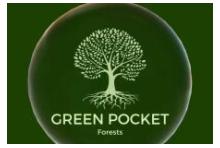Green Pocket Forests for All (Miyawaki Forests)
de INTERNATIONAL ASSOCIATION FOR HUMAN VALUES (IAHV)Miyawaki Forests: Children plant pocket forests to tackle climate change
As the world faces a biodiversity crisis, micro Miyawaki forests offer up havens for local flora and fauna by reclaiming underutilized urban spaces.
The Miyawaki method
grows 10x faster,
generates up to 100x more biodiversity,
replaces water guzzling lawns with native drought tolerant plants,
has a 95% survival rate,
addresses the urban heat island effect with a cooling microclimate (up to 25 C) and
empowers children to make a difference by participating in a climate change solution.
Includes all region specific native plants and honors local indigenous knowledge
Improve student/ community wellness
Heals and rehabilitates soil biology
These tiny urban forests enhance biodiversity, reduce water consumption to a fraction, and improve soil biology, offering a clever, green solution to many of the most pressing challenges of our time. The average height of our trees is 12 feet tall after just one year in our Miyawaki forests in Berkeley, California.
In November, 2021, Ms. Neelam Patil planted the first ever schoolyard Miyawaki forest in Berkeley, California. In the process, she empowered thousands of children to participate in a hands-on solution which had immediate results and impact on their lives, alleviating their strong sense of climate angst. At Cragmont Elementary School in Berkeley, California, what started off as a barren plot of abandoned land is now a lush, thriving ecosystem with high leaf density, healthy soil biology, and biodiversity, all while using a fraction of the water that ornamental lawns use. This weapon against climate change is quickly transforming the lives of many and the landscape around us.
Our forests in California have a 95% survival rate, use one tenth of the water a lawn uses, host 53 native species, became a local biodiversity hotspot overnight, and had an average tree height of 12 feet after just one year! And that's not even the best part- these micro forests were planted by school children who got to experience the power of tiny actions to change the world, learn indigenous values of land stewardship, and connect with nature right on their school campus or city.
Ms. Patil started a nonprofit, Green Pocket Forests, to bring the Miyawaki method to schools and cities across the US. GPF has been awarded Top Innovator status by the World Economic Forum in their “Trillion Trees: United States Challenge”. In addition, Green Pocket Forests has been invited to be a part of the UN Decade on Ecosystem Restoration. Ms. Patil was named TIME Magazine Innovative Teacher of the Year 2022 for her efforts to teach children they can do something about Climate Change.
